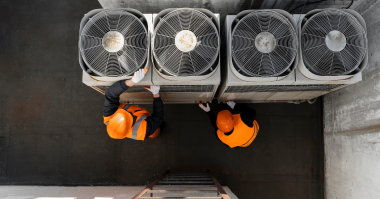Almost 200 years ago, Moscow State University lost its collection of great books when the library was burnt down, along with much of Moscow, by residents who didn’t want to see their city fall into the hands of French invaders.
Now, two centuries later, Russia’s largest university is protecting its books against another type of attack — from Mother Nature — and enlisting Xylem pumps to aid in its defense.
With more than 9 million books, the Moscow State University Library has one of the largest collections in the country, including a number of rare books and manuscripts, some of them dating back 600 years.
When a new library building was erected in 2005 to celebrate the university’s 250-year history, Xylem Lowara pumps were chosen to be part of its vital heating and ventilation system. The Xylem pumps provide a strong, steady flow of hot and cold water through the circulation system that winds throughout the 55,000 square-foot facility.
Someone once famously said that a library is “thought in cold storage.” It’s a beautiful, poetic definition, but don’t tell that to the Xylem engineers who developed these heating/cooling pumps. To them, a library is “thought in a cool, dry and stable environment.”
“Fluctuations in temperature and humidity are the biggest enemies of books and manuscripts,” says Sergey Melekhin, technical support manager for Xylem Residential & Commercial Water’s operation in Europe, Middle East and Africa. “No matter how many people are inside or what the temperature is outside, our pumps are programmed to provide the library with constant temperatures and humidity levels.”
Because they are made mostly from paper, books — especially old ones — break down easily. Rising and falling temperatures can cause the books’ paper fibers to expand or contract, and over time they break under this stress, causing the pages to become brittle and the books to crumble.
Humidity harms books in several ways. Moisture in the air combines with the books’ paper-bleaching chemicals to create harsh acids that eat into the paper. The moisture can also warp covers and create mold spores that spot the books’ pages.
In 1812, the Moscow University Library collection fell victim to a man-made fire, but with Xylem pumps working behind the scenes, it should remain safe from nature’s dangers for a very long time.




Comments